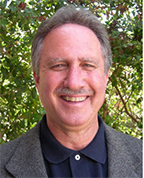
Promoting adult harmony
A culture of kindness, respect, unity, and cooperation.

90-minute virtual live sessions
Experience six live sessions on Thursdays, starting September 11th, live sessions are an added benefit, attendance is not required
.png)
Transform your community
12 hours of professional development from the International Montessori Council
Navigate difficult conversations and establish mentoring cultures in Montessori communities.
Leading a Montessori school to success and stability is becoming increasingly challenging. From catering to diverse student needs, managing upset or conflicted parents, supporting overwhelmed staff, to tackling enrollment hurdles – mastering the art of creating a conducive learning environment for both adults and children is paramount in today's educational landscape.
Curriculum
Class 1 - “Fixing a Self-Sabotaging Team”–Curbing Dysfunctional Behavior In a recent article in Harvard Business Review, entitled thus, authors N. Anand and Jean-Louis Barsoux observe, “Teams under pressure often regress to unhealthy coping mechanisms, instinctively looking for ways to allay their members’ collective anxiety. They may become stuck in pathological patterns that sabotage their mission and work.” In this Leading Edge Leadership inquiry, we will explore a solution known as the “Sociogram”–a simple drawing showing how each member perceives the group’s interactions, the use of which can help teams surface and break out of dysfunctional patterns of behavior. Class 2 - “Enhancing Trust Among the Adults in Your School Community” Montessori classrooms and schools are collaborative learning communities. Their success depends largely upon the ability and willingness of students, teachers, school leaders, and parents/caregivers to partner, to work in harmony for the greater good. But, as we know, this is easier said than done. Cultivating and maintaining trust, along with repairing important school relationships, requires inner work as well as sound communication skills. Class 3 - “The Conversations with Staff and Parents I Hate to Have.” Most of us would probably agree that redirecting the behavior of teachers, office staff, parents, or board members, or worse yet, having to terminate someone’s relationship with the school, ranks right up there as two of our least favorite tasks. How deftly we navigate these difficult and delicate discussions can influence staff morale and performance, parent relations and retention, and how legally at-risk we are putting our schools. In this Leading Edge Leadership inquiry we will discuss strategies for guiding wayward staff and parents to get on board, with regard to program standards and school policies, as well as how to safely and respectfully disembark people who are no longer the right fit for your learning community. Class 4 - “Create a Mentoring Culture in Your School Community” Inviting and empowering those with knowledge and skills to share their learning and expertise with others is a fundamental principle in Montessori education, whether it be in a classroom community of students or in a school community of adults. Yet in many Montessori classrooms, we observe Montessori guides presenting lessons and redirecting behavior that some observably capable students could deliver. Similarly, we observe teachers in Montessori communities wrestling on their own with an instructional or communications challenge, when right down the hall is a teacher with experience and skills that could be of help. In this session, we will explore how Montessori classrooms and schools can create a mentoring/coaching culture in which people with experience can effectively support those in need. Class 5 - “The Transformative Power of School Community Meetings” A well-designed and deftly-facilitated school community meeting can cultivate a stronger Montessori learning community, enhance communication, collaboration, partnerships, and teamwork. Conversely, a poorly planned or ineptly led community meeting has the potential to foment painful discord and divisiveness among key stakeholders in the school. In this session, we will review the key components of an effective school community meeting. Class 6 - “Make the Most of Your One-on-One Meetings”–With Staff and Parents In a recent article by this name in Harvard Business Review, author Steven G. Rogelberg writes, “The best managers recognize that 1:1s are not an add on to their role–they are foundational to it. Those who fully embrace these meetings as the place where leadership happens, can make their teams’ day-to-day output better and more efficient, build trust and psychological safety, and improve employees’ experiences, motivation, and engagement.”

Jonathan Wolff
Jonathan, an educator and consultant with over 30 years of experience in leadership development. Through workshops and consultations worldwide, he has honed his expertise in leadership, strategic planning, and organizational effectiveness. Jonathan's focus is on enhancing individual and organizational performance through innovative programs.
